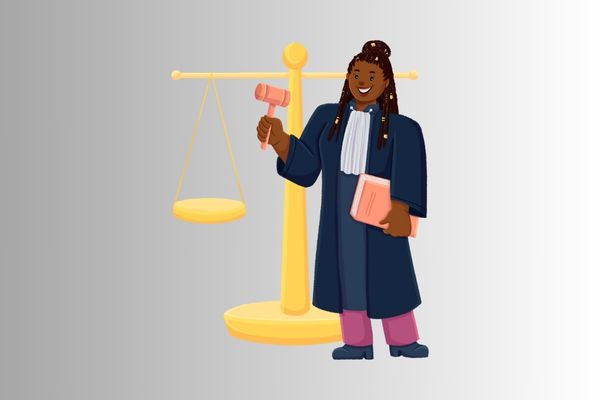What are the conditions for practicing law in Vietnam? What actions are lawyers not allowed to perform according to current regulations?
What are the conditions for practicing law in Vietnam?
Based on the provisions of Article 10 of the Law on Lawyers 2006, the criteria to become a lawyer are as follows:
Standards for lawyers
A Vietnamese citizen who is loyal to the Fatherland, complies with the Constitution and laws, possesses good moral qualities, holds a bachelor of law degree, has received legal training, has undergone a period of practice in law, and has health suitable for practicing law can become a lawyer.
Standards to become a lawyer are as follows:
- A Vietnamese citizen loyal to the Fatherland
- Complying with the Constitution and laws
- Possessing good moral qualities
- Holding a bachelor of law degree
- Having received legal training
- Having undergone a period of practice in law
- Having health suitable for practicing law
Simultaneously, based on the provisions of Article 11 of the Law on Lawyers 2006, the practice standards for lawyers are as follows:
Conditions for practicing law
Those who meet the standards prescribed in Article 10 of this Law who wish to practice law must have a Law Practice Certificate and join a Bar Association.
Thus, to practice law, one must meet the following conditions:
- Being a Vietnamese citizen and loyal to the Fatherland
- Complying with the Constitution and laws
- Possessing good moral qualities
- Holding a bachelor of law degree
- Having received legal training
- Having undergone a period of practice in law
- Having health suitable for practicing law to become a lawyer
- Holding a Law Practice Certificate
- Being a member of a Bar Association

What are the conditions for practicing law in Vietnam? What actions are lawyers not allowed to perform according to current regulations?
What actions are lawyers prohibited from performing in Vietnam?
Based on the provisions of Article 9 of the Law on Lawyers 2006, amended by Clause 3, Article 1 of the Amended Law on Lawyers 2012, prohibited actions for lawyers are as follows:
Prohibited actions
1. Lawyers are prohibited from performing the following actions:
a) Providing legal services to clients whose interests are in conflict within the same criminal case, civil case, administrative case, civil matter, other legal matters (collectively referred to as cases);
b) Deliberately providing or guiding clients to provide false documents, evidence; inciting detainees, suspects, defendants, litigants to make false statements or encouraging clients to file unlawful complaints, accusations, or petitions;
c) Disclosing information about the case or the client known during the practice, unless the client consents in writing or the law provides otherwise;
d) Harassing or deceiving clients;
dd) Demanding or receiving any additional money or benefits from clients beyond the agreed fees and costs in the legal service contract;
e) Colluding, relating with judicial participants, judicial proceeding participants, and other officials and public employees to violate the law in resolving cases;
g) Exploiting the practice of law, or the title of lawyer to adversely affect national security, public order, and social safety, infringing upon the state's interests, public interests, rights, and legitimate interests of agencies, organizations, and individuals;
h) Demanding or receiving any additional money or benefits when providing legal aid to clients eligible for legal aid by law; refusing cases already accepted at the request of the legal aid organization, judicial agencies, except in cases of force majeure or as prescribed by law;
i) Using insulting language or behavior towards individuals, agencies, or organizations during proceedings;
k) Personally or assisting clients in unlawful acts to delay, prolong time, or obstruct the activities of judicial agencies or other state agencies.
...
Thus, lawyers are not allowed to perform the actions that are prohibited according to the above regulations.
Simultaneously, based on the provisions of Article 5 of the Law on Lawyers 2006 (which contains phrases replaced by Clause 37, Article 1 of the Law on Lawyers amended 2012) regarding the principles of practicing law as follows:
Principles of practicing law
1. Complying with the Constitution and laws.
2. Complying with the “Code of Ethics and Conduct for Vietnamese Lawyers".
3. Independence, honesty, respect for objective truth.
4. Using lawful measures to best protect the legitimate rights and interests of clients.
5. Bearing responsibility before the law for the professional activities of lawyers.
Lawyers must comply with the principles stated above while practicing law.
Who is not eligible to be issued a Law Practice Certificate in Vietnam?
Based on the provisions of Clause 4, Article 17 of the Law on Lawyers 2006 (amended by Clause 8, Article 1 of the Law on Lawyers amended 2012) regarding cases in which a Law Practice Certificate is not granted as follows:
Issuance of Law Practice Certificates
...
4. Persons in the following cases shall not be issued a Law Practice Certificate:
a) Failing to meet the standards of lawyers as prescribed in Article 10 of this Law;
b) Officials and public employees; officers, professional soldiers, defense workers in agencies and units of the People’s Army; officers, non-commissioned officers, workers in agencies and units of the People’s Police;
c) Not residing permanently in Vietnam;
d) Being prosecuted; having been convicted but not yet expunged for unintentional crimes or less serious intentional crimes; having been convicted for serious intentional crimes, very serious intentional crimes, especially serious intentional crimes even if the conviction has been expunged;
dd) Being subject to administrative measures including compulsory detoxification or compulsory education institutions;
e) Losing or having limited civil act capacity;
g) Persons specified in Point b of this Clause who have been dismissed for not completing the three-year period from the effective date of the dismissal decision.
Thus, persons falling into the above cases will not be granted a Law Practice Certificate.
LawNet